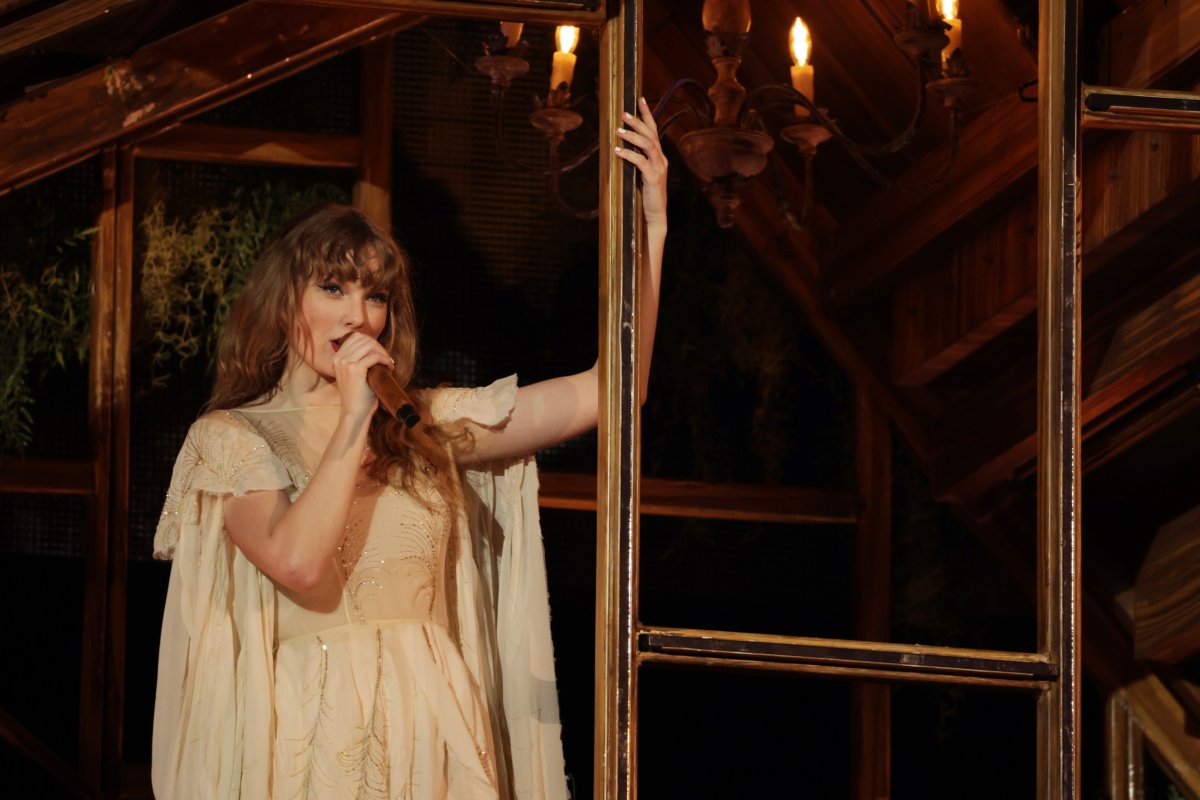

Taylor Swift has divided music lovers with a lyric on her new album that says she would like to have lived in the 1830s.
Swift, 34, released her new album, The Tortured Poets Department (TTPD), on Friday, which featured the song “I Hate It Here.”
In the opening lines of the second verse, Swift sings about how she and her friends “used to play a game where/We would pick a decade/We wished we could live in instead of this.”

“I’d say the 1830s but without all the racists/And getting married off for the highest bid,” Swift sings.
The song does then continue by conceding: “Seems like it was never even fun back then/Nostalgia is a mind’s trick/If I’d been there, I’d hate it/It was freezing in the palace.”
But the line about the 1830s has raised a lot of eyebrows especially among Black people, who pointed out that slavery was still legal during that time. Women also didn’t have the right to vote and it was an era marred by many health pandemics including influenza and cholera.
Newsweek contacted Swift’s representatives by email for comment.
Kiki Rae Real, an anti-racism education content creator, argued how we define racism nowadays was not applicable in the 1830s when even “[slavery] abolitionists of that time were not exempt from anti-black views.”
“These people who opposed the institution of slavery also did not believe that African Americans were equal to white Americans. Black people were still believed to be the inferior,” Real said in a video posted to TikTok.
“Much like the views held by Abraham Lincoln, ‘Mr. Free the slaves himself’, do you think Lincoln thought that he was racist? Probably not.”
Real added you did not have to be a slave owner at the time to hold racist views,
“just as you don’t have to be a member of the version of the ‘crazy cr***** club that we have today to be a racist today.”
“Black residents in the north still faced considerable racism and racial discrimination. They lived in the poorest and unhealthiest neighbourhoods in the cities barred from all employment, except menial labour and were periodically harassed by white mobs,” Real explained.
“You see the 1830s doesn’t exist without racism and the racists.”
Another person to attempt to contextualize the history of the time and how it impacts today’s world to argue how Swift’s lyrics are problematic was the TikTok user @andwelcometo.
She argued modern-day feminists, including Swift, need to make sure they are being “intersectional” with their advocacy and simply brushing off the 1830s by saying “without all the racists” was not enough, because women were impacted by many discriminatory laws then as they are now, as are Black people.
“It’s a very white lens to filter it through… it is not broadening it to understand everything that was happening and the context of the time,” she began.
“It also shows how you don’t understand how this s*** continues to [these] days, how these systems have manifested in different ways over time.”
She then used examples of the forced sterilization of black women over history, comparing it to the recent sterilization and forced abortions of migrant women in U.S. detention centers. The TikToker also used the overturning of Roe vs Wade in the Supreme Court, which allowed federal access to abortion, and whose decision has led to upholding archaic abortion laws, such as in Arizona, as further proof of her argument. – bbc.com